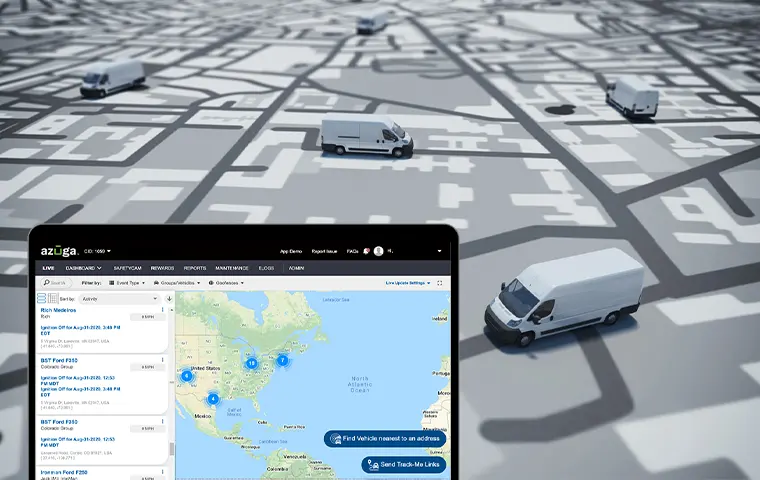I. Introduction
Having an accurate Fleet TCO calculation helps keep your fleet running smoothly. Fleet TCO optimization gives you an accurate picture of your fleet’s health – when to replace vehicles or transition to leased vehicles – and helps maximize your fleet’s ROI.
II. Understanding Fleet TCO
The biggest costs in Fleet TCO are the vehicles and their maintenance. Insurance, licensing, and fleet management fees make up the bulk of fleet TCO costs. Tight fleet budgets can put pressure on your company’s bottom line.
A comprehensive approach to lowering your fleet's total cost of operation can reduce costs. This approach can include proactive maintenance, strategic fleet utilization, efficient fuel management, and the use of the right tools for optimizing fleet expenses.
III. Approaches to Optimize Fleet TCO
There are several elements to fleet TCO optimization. Focusing on variable costs can be a good place to start. Here are some approaches to optimize your fleet’s TCO.
Vehicle selection: Fuel costs are a big factor in fleet TCO. Choosing fuel-efficient vehicles that are electric or hybrid can give your fleet better gas mileage.
Management fees: You want to look for a fleet management company that gives you the most value. When choosing a management company, look for technical innovation and tools that help optimize your fleet’s performance. Make sure they can provide guidance on vehicle decisions like purchasing vs. leasing.
Driver training: Training drivers can reduce accidents and help reduce fuel consumption.
Technology and tools: Use technology and tools to reduce your fleet’s TCO. Technology that monitors driver behavior and routes helps you keep track driver behavior and reduce fuel fraud. Using a fleet card for purchases can give you analytics on fuel usage and maintenance. These tools can give you a clearer picture of how your fleet is operating and where to make changes.
IV. How to Lower Fleet Operational Expenses
Strategies for fleet cost reduction include:
Fuel management: Besides purchasing fuel-efficient vehicles, regular maintenance, driving training on fuel management, and aerodynamic vehicle improvements can help directly lower operational costs.
Route optimization: Route optimization helps you find the most cost-effective route for each vehicle. The right route optimization technology helps you calculate stops per route, the location of these stops, traffic conditions, the best driver for each route, and more.
Proactive vehicle maintenance: Proactive vehicle maintenance helps prevent costly breakdowns and keeps your vehicles on the road.
V. Case Study: Successful Fleet TCO Optimization
HomeWorks Plumbing, Heating, and Air was looking for a solution that was easy to install since the trucks are on the road 90% of the time. HomeWorks Plumbing, Heating, and Air had no time to take vehicles off the road to install GPS units.
The company chose Azuga thanks to its integrations with other service providers. The HomeWorks team brings quality service to customers. They need to get to the job site safely and on time.
Using TCO optimization from Azuga allowed the HomeWorks team to:
- Tell customers when their technician will arrive
- Reduce wear and tear on vehicles by 80%
- Optimize its fleet oil changes, battery replacements, and filter and wiper exchanges
- Easily capture costs, timing, and set a schedule when it is most convenient for the fleet and business for maintenance.
VI. Conclusion
Understanding your Fleet TCO lets you take action to optimize costs and operations. Fleet TCO optimization is a key to successful fleet management and helps you manage rising costs. The right tools, analytics, people, and management company can make a significant difference to your efforts.
Get higher operational efficiency and cost savings with the right tools for optimizing fleet expenses.
Most Common Questions
1. What is fleet TCO?
Fleet TCO is the total cost of ownership of owning and operating a fleet of vehicles. TCO can include vehicle maintenance, fuel, driver training, or vehicle purchasing or leasing.
2. How can I reduce my fleet's TCO?
There are several ways you can reduce your fleet’s TCO. Selecting electric or hybrid vehicles can reduce fuel costs, and training drivers on safe driving and fuel consumption can reduce accidents and fuel costs. Technology can help you optimize your fleet’s routes, saving on maintenance and gas.
3. What strategies can lower fleet operational expenses?
Fuel management, route optimization technology, and proactive maintenance can also lower fleet operational expenses.
4. How does vehicle selection impact fleet TCO?
Electric or hybrid vehicles can lower fleet TCO by decreasing fuel consumption. Selecting more aerodynamic vehicles can also help reduce fleet TCO.
5. What role does telemetry play in fleet TCO optimization?
Telemetry lets fleet managers track and monitor vehicles in real-time. These systems can help improve driver safety and proactive maintenance.








